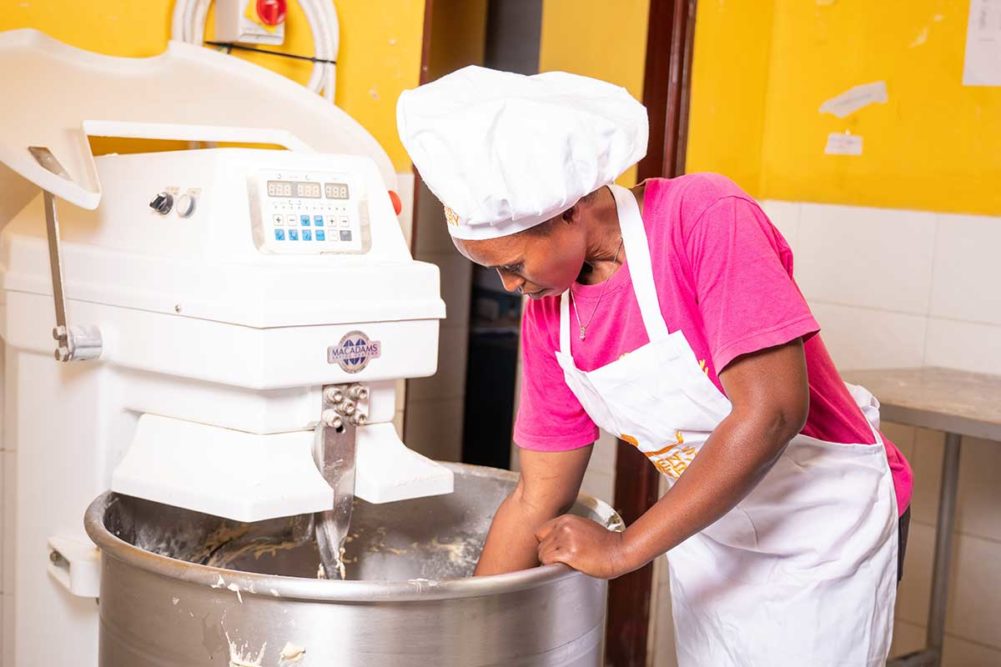Empower, educate and employ women, and you inevitably energize a community and even an entire country’s economy. That is the idea behind The Women’s Bakery, the social enterprise founded by Markey Culver in Rwanda in 2015.
Working in Rwanda for the Peace Corps, Culver taught herself to bake bread, then taught the women around her to do the same, and watched as they used that skill to feed their children and then start selling the bread to their communities. The way women put their new skills back in their communities inspired Culver to turn this endeavor into a true path to empowerment and employment. Today, The Women’s Bakery educates and employs women in Rwanda to work in three bakeries, baking bread to sell at rural markets and to feed more than 20,000 schoolchildren a day.
This isn’t a one-off, however. The data shows that when countries have a robust female workforce, their economies do better. The International Monetary Fund’s paper on “Pursuing Women’s Economic Empowerment” estimated that closing the gender gap could improve gross domestic product in Canada by 4%, Japan by 4%, Pakistan by 30% and Niger by 32%. Another study reported in that paper showed that large gender disparities in education have a negative impact on gross national product. Educating and employing women is tied to better outcomes for their children and their communities: improved health, upward economic mobility and more purchasing power that is poured back into a country’s economy.
However, there are some real barriers to women entering the workforce, especially in a developing country like Rwanda. While I may lament a lack of affordable child care from my place of privilege in the United States, Pauline Kariuki, chief operating officer of The Women’s Bakery, pointed out that in Rwanda there is no child care option without family or a supportive partner. Providing child care is a necessity if you’re employing women. Many of the women hired by The Women’s Bakery lack a formal education and need basic financial literacy once they start earning a paycheck. While women climbing the ladder in the West face barriers, they aren’t nearly as daunting as the ones these women face.
As The Women’s Bakery looks for a way to become profitable so it can continue its worthy mission, it would be easy for an outsider to look at the drain from these social programs on the budget and see an easy solution: cut them. Kariuki pointed out that the bakeries would likely be profitable very quickly after that. But then The Women’s Bakery would no longer be The Women’s Bakery. To empower and employ women in Rwanda, these programs are nonnegotiable. You can read more about The Women’s Bakery’s goals in this issue’s Industry Spotlight.
Women offer the world an incredible opportunity as a workforce, but region to region, there are roadblocks, both cultural and political, that make it harder for them to participate. By helping to eliminate those barriers, or at least ease them, companies, communities and economies can benefit from the strength a female workforce brings.





